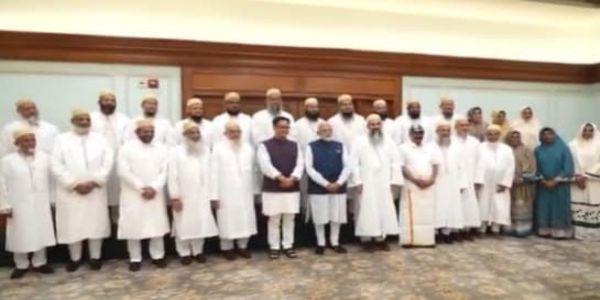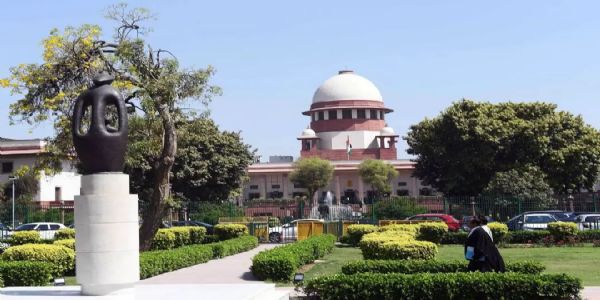
Delhi, 9 April (H.S.): Today, Prime Minister Narendra Modi inaugurated the Navkar Mahamantra Divas at Vigyan Bhawan, New Delhi, highlighting the spiritual significance of the Navkar Mantra. He depicted its ability to cultivate peace and inner stability, sharing his personal experience of collective chanting in Bengaluru that showcased the power of communal energy. Drawing from his roots in Gujarat, he spoke about Jainism’s profound impact on him and the teachings of Jain Acharyas that shaped his understanding. The Prime Minister emphasized that the Navkar Mantra embodies not merely faith, but the essence of life, with significance in each verse and syllable.
He praised revered Jain figures—Arihants, Siddhas, Acharyas, Upadhyayas, and Sadhus—for their contributions to spiritual enlightenment. Shri Modi stated that reciting the mantra nurtures self-belief and personal growth, identifying the inner negative thoughts as the true adversaries. He called for self-conquest as the path to becoming an Arihant, asserting the mantra's role in fostering inner harmony.
He also recognized the number nine’s importance, linking it to Jain virtues and elements of life, highlighting that chanting in multiples of nine embodies completeness. The Prime Minister connected India's identity to Jainism’s teachings, celebrating the recent return of Tirthankara idols in relation to Lord Mahavir’s Nirvana Mahotsav. He noted Jain influences in the new Parliament building and affirmed the government’s commitment to “Sabka Saath, Sabka Vikas,” reflecting enduring values.
Shri Modi emphasized that Jain literature is integral to India's intellectual heritage, underscoring the government's dedication to preserving this legacy by granting classical language status to Prakrit and Pali. He praised ancient Jain manuscripts as crucial vessels of history and wisdom, addressing concerns over the potential loss of these texts. To combat this, he introduced the Gyan Bharatam Mission aimed at digitizing manuscripts and safeguarding heritage by merging tradition with modern technology. Modifying global issues such as war and environmental challenges, he highlighted Jainism's principles, particularly Parasparopagraho Jivanam, which underscores life's interconnectedness.
Modi further advocated for Jainism’s non-violence and its relevance for promoting environmental conservation and peace, emphasizing Anekantavada as a means to foster understanding and reduce conflict. With India's growing global influence, he expressed hope that the nation’s advancement inspires international cooperation. Addressing climate change, he promoted sustainable lifestyles through Mission LiFE and encouraged the Jain community to embody values of simplicity and restraint.
He stressed that in an era overflowing with information, wisdom is essential for meaningful knowledge. The teachings of Jainism, particularly the Navkar Mahamantra, which offers spiritual guidance, highlight the necessity of balancing knowledge with wisdom, especially among youth. Modi called for ethical considerations in education and technological development, advocating for harmony between intellect, emotion, and spirituality for a more enriched life.
---------------
Hindusthan Samachar / Jun Sarkar








